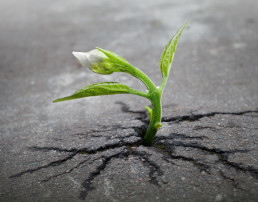What do resilient businesses do differently?
Why did some businesses bounce back more quickly after Victoria’s year of double disasters? What did these businesses do differently?
Victoria University and Victorian Tourism Industry Council collaborated to investigate the impacts of crises on the Victorian visitor economy to develop strategies to help the industry build resilience to future crises and shocks.
So why did some businesses fair better during 2020 the year of double disasters – bushfire and pandemic? What did they do differently? The report identified that the most resilient businesses had strengths in planning, were connected and collaborated – working on their business before the double disasters put them in good stead to the resilient.
We believe the learnings from this report can be adapted to any business and any industry, and provide us all with an opportunity to build resilience in our own businesses and industries.
The top-line learnings from the report were:
Resilient businesses are;
- Accredited
- Connected and Collaborate
- Technology users
- Planners
- Leaders
Resilient destinations have:
- Strategic Tourism plans
- Collaborative leadership
- Regulatory support
- Stakeholder engagement & Communication
Beneath these findings it was also identified that businesses and destinations that had a Risk Analysis within their suit of business planning tools where more likely to bounce back more quickly. While no one would have considered a pandemic as a risk, having considered other risks to their business and how to manage these was a learned skill that these businesses were able to quickly adapt to the pandemic.
It should also be noted that businesses who had previously entered the Tourism Awards were more agile, resilient and also bounced back more quickly than other businesses - another testament to businesses who have business and marketing plans in place were better prepared, able to pivot and weather the storm.
We would also suggest that successful brands didn't ‘go dark’ during 2020 and maintained relationships with their customers, and increased their share of voice in the market will result in bouncing back faster. We know that brands who go dark loose share of voice in market, and their space is taken up by competitors. The result - brands that go dark are slower to recover and often never really catch up. On the other hand brands that maintain or grow their share of voice in market during difficult times are more likely to thrive in sales and profit growth.
If you’d like to learn more, click on the link to the report. Or if you would like to chat though your business resilience and how we can help you give Ali a call on 0411 135 317 or email alison@roadmapstrategy.com.au
Victoria University - Building The Resilience of Tourism Destinations to Disasters:
The 2020 Victorian Bushfires and COVID-19 Pandemic - April 2021
https://www.vu.edu.au/sites/default/files/tourism-resilience-report.pdf

